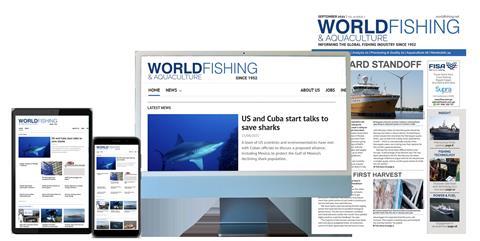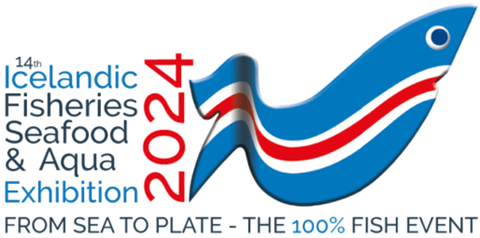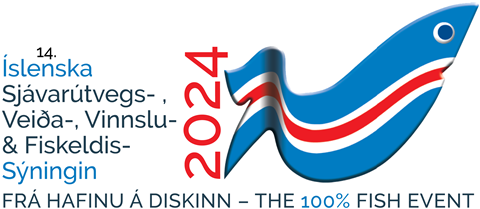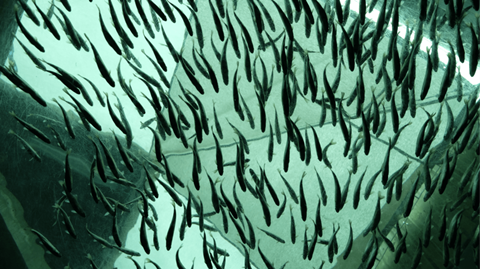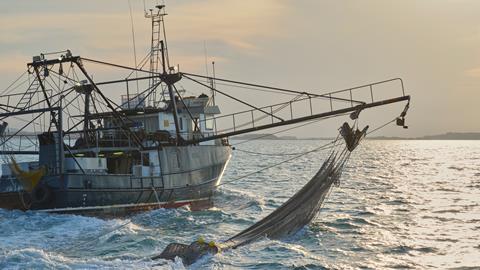Analysis – Page 21
-
 News
NewsIFFO CORP for fishmeal and fish oil
The Code will enable fishmeal and fish oil producers to show that they are offering traceable, high quality marine products which are manufactured safely using fish from responsibly managed fisheries.CORP was announced at IFFO's recent members' meeting in Brussels and in mid-May the cross-industry Technical Advisory Committee, which will help ...
-
News
The Adriatic - where mountains meet sea
From the 1960s to the 1980s this seafood paradise attracted tens of millions of summer tourists and now both Italian and the Eastern coasts are clawing back their clientele. Peter O’Neill finds governments talking more about serious collaboration on fish, trade and tourism, but there are some tricky whirlpools to ...
-
News
Do we change the fish in water?
What could make 17 scientists from eight European countries, most of them associated with their national fisheries research institutes, team up to author a rather short article describing a situation that is well-known and has been written about before?
-
News
Nor-Fishing 2008 Preview
“This year the Nor-Fishing Foundation is organising the 22nd international fishery trade show since 1960, and we are pleased to see that many of the previous years’ exhibitors are returning to this year’s exhibition. In fact, most of the exhibition area was fully booked in the early spring of this ...
-
News
Secret Albania
The difficult relationship between fishermen and politicians and bureaucrats is well documented. At its heart has been the disagreement over the value and validity of the data on which so many political decisions have been based in the past.Were the politicians and bureaucrats such as himself listening to the Albanian ...
-
News
The answer is blowing in the wind
According to U.S. Coast Guard (USCG) Commandant, Adm. Thad Allen, the waters of the Bering Sea are "challenging for vessel operations and search and rescue missions". The stormy Bering Sea is notorious as a widow maker.
-
 News
NewsIUU – On the pirate trail
Gunnar Album, Friends of the Earth Norway, Barents Sea Office, on the fish trail. TW : EEC PhotosAfter the third London conference on Illegal Unreported Unregulated (IUU) Fishing in 2007 there was a tough reaction against NGO allegations that certain fish markets were laundering illegal catch. Chris Leftwich, The Chief ...
-
 News
NewsWorld tuna - a look from FAO
Tuna fisheries represent a heavily invested industry that operates highly mobile fleets of large expensive purse seiners and longliners.
-
 News
NewsThe fishmonger, the coley and common sense
"When you already know you are a good fishmonger - you don't need this!" Charlie Caisey MBE on certification. TW:EEC PhotosThe route from catch to plate can be fiendishly complex. However, at bottom, it should simply mean how can a fisherman or fishfarmer earn a decent living by husbanding ...
-
News
How to attain decent working conditions?
Globalisation of fisheries is characterised by fishermen fishing not only in their own national waters, but also on the high seas and in the waters of other countries, and by an unprecedented growth in the number of fishermen from developing countries on board fishing vessels of industrialised countries.
-
News
“Tho’ nature, red in tooth and claw….”
This was long before we saw on TV killer whales ripping apart seals, sharks savaging tuna, or grizzlies gorging on bloody salmon. As Tennyson and Charles Darwin spelt out, we, and the animal kingdom kill to survive, and survival of the fittest reaches out from our daily food tragically into ...
-
News
Tuna market trends 2006/2007
EuropeYellowfin catches have been disappointing around the Eastern Indian and Western Pacific fishing grounds over the past year. Prices of yellowfin went up substantially in the course of 2006. Skipjack prices weakened in the course of 2006 to US$885 per tonne, however in the opening months of 2007, lower landings ...
-
 News
NewsPirates, poachers or global crime syndicates?
Impacts of IUU fishing: economic lossesFirst the bad news, from the 3rd Update and Stakeholder Consultation on illegal, unregulated and unreported fishing (IUU) organised in London by the Royal Institute of International Affairs. Stakeholders conspicuous by their absence were fishermen, with not one attending. The agenda and meeting was dominated ...
-
News
When David’s die and Goliath’s rejoice
Fishermen’s lives go cheap in more than one way. Apart from engaging in one of the most hazardous occupations worldwide, they are frequently outside the reach of the occupational safety and health services available to other working people. They must navigate, often in shaky vessels, under hazardous weather conditions, and ...
-
News
EU seafood sector report
The report shows that the total seafood supply of the EU-27 countries in 2005 was 7.1 million tonnes, of which 5.8 million tonnes were derived from capture.The largest fishing nation is Denmark, representing 16% of total capture of the EU-27, followed by Spain (15%), the UK (12%) and France (11%).Seafood ...
-
News
Fishermen’s knowledge
Nobody would deny that experienced professional fishermen, especially the old salt among them, possess a wealth of knowledge on fish and sea, and on what’s going on between the two, accumulating for generations.
-
 News
NewsP/F Vinnan orders new purse seiner/trawler
Simulation of P/F Vinnan's new vesselThe new Vik-Sandvik designed fishing vessel has the following main dimensions: Length: 81.6m Length between p.p.: 71.8m Breadth: 16.6m Depth to 1. deck: 10m Depth to 2. deck: 7.2m Frame spacing: 0.6mThe accommodation is for 16 persons and delivery is due in August 2009.
-
News
New fishery surveillance vessel for the Danish Government
Co-financed by the European Union, the vessel will be equipped with the most advanced high-sea rescue and spillage prevention technology.The ship, measuring 68 metres in length and with a beam of 11, will be provided with a total power of 3600Kw by its two 1800Kw electric engines, allowing it to ...
-
 News
NewsHoe your sea furrow
The best ‘farming’ approach means avoiding underfishing as much as overfishing. This means management by fishermen based on real time catch data and morbidity, not the scientists’ data alone, the latter often flawed in its collection (see the herring report in Part I, World Fishing May 2007) and perhaps years ...
-
News
The Northwesterly fury
“…Yet this sea, this beautiful sea, is not to be trifled with. If It gets angry and suddenly and unexpectedly begins to foam, the waves whipped up by the tramountana rise up, break out into the open sea and crash furiously down onto the rocks, which wince and howl with ...

